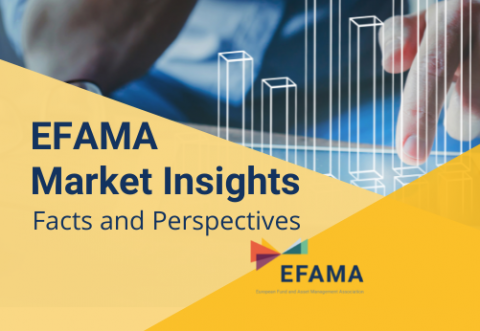The asset management industry recognises the much-needed adoption of mandatory European sustainability reporting standards under the Corporate Sustainability Reporting Directive (CSRD) proposal. Insufficient availability of meaningful, comparable, reliable, and public Environmental, Social and Governance (ESG) data is a key impediment to realising the full potential of the EU's sustainable finance regulatory framework. Financial market participants' sustainable investments need to be driven by real, verifiable and reported ESG metrics of company's activities and financial risks.
Sustainability reporting (NFRD/CSRD)
To integrate ESG consideration into investment decisions, asset managers need reliable, comparable and standardised information on how companies perform against pre-defined sustainability criteria. At the same time, asset managers require better ESG company data for their own compliance with reporting obligations under the Taxonomy and SFDR.
EFAMA advocates expanding the scope of entities and adopting mandatory EU sustainability reporting standards under proposed Corporate Sustainability Reporting Directive. Sustainability information disclosed under CSRD should be subsequently centralised in a publicly-accessible European Single Access Point. At the same time, the EU should encourage developments towards a harmonized global sustainability disclosures ecosystem. To ensure consistency, transparency and accountability, we also advocate for the development of a European regulatory framework for providers of sustainability data, research and ratings.
Position on the scope of CSRD and the interplay with SFDR
IFRS consultation on sustainability reporting
EFAMA shares the urgent need to improve the consistency and comparability of sustainability reporting at a global level. We believe this is a crucial enabling factor to the success of the global efforts to mainstream sustainability in the financial sector. A global set of internationally recognised sustainability reporting standards would help establish an effective chain of information from corporates to the benefit of investors.
Joint statement on the revision of the NFRD in the context of Covid-19
ISSB's Exposure Drafts on Sustainable Reporting Standards
EFAMA shares the urgent need to improve the consistency and comparability of sustainability reporting at a global level. Therefore, we welcome the opportunity to respond to the ISSB consultation on the Exposure Drafts on “General Requirements for Disclosure of Sustainability Related Financial Information” (IFRS S1) and on “Climate-Related Disclosures” (IFRS S2).
EFAMA highlights that alignment and interoperability with global standards are key
EFAMA has stressed that global alignment of sustainability reporting standards will be necessary to ensure clarity for investors as Europe moves towards a zero emissions economy by 2050.
PTF-ESRS consultation survey on draft European Sustainability Reporting Standards
EFAMA strongly supports the initiative carried out by EFRAG with the publication of the Exposure Drafts on the European Sustainability Reporting Standards (ESRS). The Exposure Drafts provide key elements framing the architecture of reporting requirements and clarifying the content and key concepts of CSRD. The resulting data will be of crucial importance for investors and for achieving the EU objective to transition towards a zero emissions economy by 2050.
Market Insights | Issue #4 | ESG investing in the UCITS market: a powerful and inexorable trend
The report looks at the major trends in the ESG UCITS market, the impact of the coronavirus pandemic, and the behaviour of ESG and non-ESG funds.
3 questions to Thierry Bogaty on the EU Ecolabel for retail financial products
Q #1 Can the EU Ecolabel for retail financial products help channel individual investors’ savings into environmentally sustainable projects?
A well-designed EU Ecolabel has the potential to provide clear guidance on the financial products retail investors can invest in if they wish to support environmentally sustainable projects and activities - in line with the EU Taxonomy Regulation. The European Commission wants to create a trusted and verified label for retail investors, who would benefit from better comparability of financial products.
































